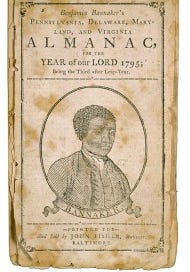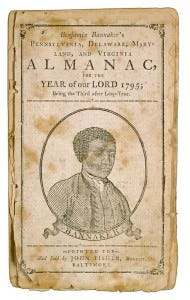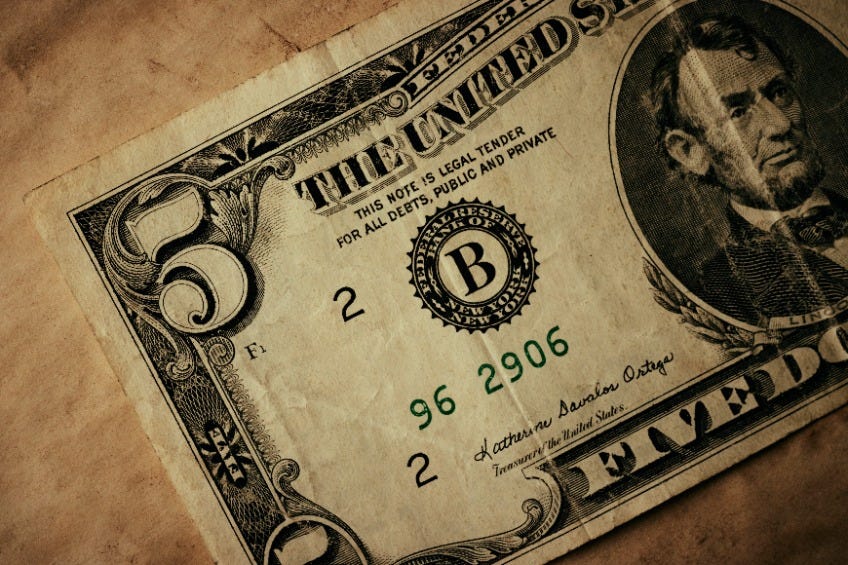Issue #454 Black History Friday, January 12, 2024
Welcome to this Today in Black History post. Black History IS American History, no matter how hard some people try to erase our history and contributions.
Today’s Black History WOW!
Benjamin Banneker was born on November 9, 1731, in Baltimore County, Maryland. He was the son of a freed slave named Robert, who was skilled in farming, and his mother, Mary, who was the daughter of an Englishwoman and a free African slave. Despite being born into a time of slavery and racial oppression, Banneker showed an early aptitude for learning.
Despite not receiving formal education beyond the age of 15, Banneker's intelligence and dedication led him to become a self-taught mathematician and astronomer. In the late 1750s, he constructed a clock entirely from wood, showcasing his mechanical genius. This invention brought him recognition and respect in the local community.
Banneker's most notable achievement came in the field of astronomy. In the 1780s, he began observing celestial phenomena, such as comets and eclipses, and accurately predicting their occurrences. His notes and calculations led him to publish the first almanac written by an African American in 1792, called "Benjamin Banneker's Pennsylvania, Delaware, Maryland, and Virginia Almanack and Ephemeris." This almanac was renowned for its accuracy and was published annually for several years. He was also heavily involved in surveying and assisting in the design and layout of the nation's capital, Washington, D.C.
In addition to his work in astronomy, Banneker was also an advocate for racial equality and abolition. He corresponded with Thomas Jefferson, challenging the contradiction between slavery and the principles of the American Revolution. Banneker's letter to Jefferson, written in 1791, eloquently argued for the rights and humanity of African Americans.
Today’s Black History
- In 1904, the Herero people of South West Africa (now Namibia) rebelled against German colonial rule.
- In 1948, the U.S. Supreme Court decided in Sipuel v Oklahoma State Board of Regents that a state must afford Blacks “an opportunity to commence the study of law at a state institution at the same time as [other] citizens.”
- In 1952, the University of Tennessee admitted its first Black student, Gene Mitchell Gray, as a graduate student in chemistry.
- In 1990, Rev. Al Sharpton was stabbed in Bensonhurst, Brooklyn.
- In 2010, an earthquake devastated Haiti, killing approximately 160,000 people and destroying the majority of the capital of Port-au-Prince.
- In 2017, President Barack Obama surprised Vice President Joe Biden with an award of the Presidential Medal of Freedom.
The “Comments” feature has been disabled. Instead, let’s discuss these facts in our community on Substack Notes. You can also read other Substack publications without subscribing to them when you join Notes.
A lot of this information is available at yenoba.com, blackfacts.com, and onthisday.com.
This post is free to read/listen to for two days. To have 365 24/7 access to all our posts and podcast episodes and financially support “We Are Speaking” for no more than $5 per month, please subscribe at the paid level.
Are you an independent author or creative professional looking for a place where you can tackle those branding and marketing challenges and learn with me through valuable books and online courses? The Global Creative Community Branding and Marketing Academy (GCC BMA) is for you!







